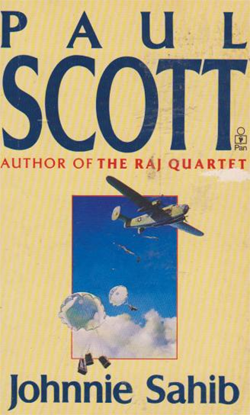Jan 06, 2026
Jan 06, 2026
 Paul Scott’s novels are judicious, wise and well-informed. Consistency and completeness are the remarkable features of his achievement. With the possible exception of The Bender, he has not written a single novel which is not a fully serious and accomplished work of fiction. As he gets into his stride the scope of his interest widens, the depth of his understanding of human nature becomes more profound, and his technical resources grow more sophisticated as the subjects on which they are brought to bear grow more complex. The English in India are the heart of Scott’s novels, and it would be hard to forget any of them [Jean.G.Zorn : ‘Talk with Paul Scott’, New York Times Book Review. Aug,21, 1977. P.37.]
Paul Scott’s novels are judicious, wise and well-informed. Consistency and completeness are the remarkable features of his achievement. With the possible exception of The Bender, he has not written a single novel which is not a fully serious and accomplished work of fiction. As he gets into his stride the scope of his interest widens, the depth of his understanding of human nature becomes more profound, and his technical resources grow more sophisticated as the subjects on which they are brought to bear grow more complex. The English in India are the heart of Scott’s novels, and it would be hard to forget any of them [Jean.G.Zorn : ‘Talk with Paul Scott’, New York Times Book Review. Aug,21, 1977. P.37.]
03-Jul-2012
More by : Dr. T. S. Chandra Mouli

|
Thank you,sir. |

|
Very scholarly article! |